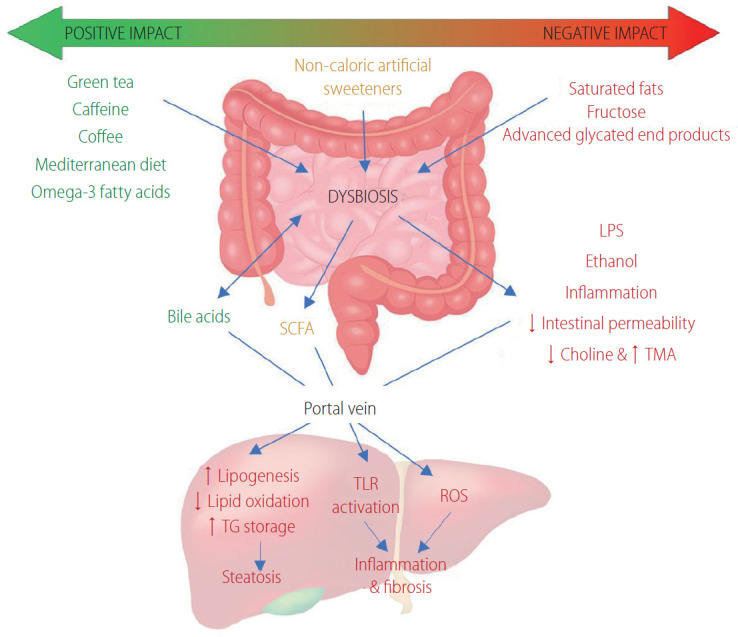Figure 2.

A summary of the effect of dietary factors on the gut microbiome and their effects on hepatic pathways leading to the development of hepatic steatosis, inflammation and fibrosis. Green tea, caffeine, coffee, a Mediterranean diet and some polyunsaturated fatty acids, such as omega-3, have favorable effects on the composition of the gut microbiome. Consumption of saturated fatty acids, fructose and advanced glycated end products cause harmful changes to the gut microbiome composition. Dysbiosis is associated with altered production of SCFA, altered choline and bile acid metabolism, higher abundance of LPS containing bacteria, increased bacterial derived ethanol, increased intestinal permeability and upregulation of inflammatory processes. The harmful consequences of dysbiosis affect normal liver physiology, particularly given the close relationship between the gut and liver. Hepatic lipogenesis and triglyceride storage are upregulated whilst lipid oxidation is reduced, leading to hepatic steatosis. Activation of hepatic TLR (e.g., TLR-4) and the generation of ROS drives hepatic inflammation and fibrosis. LPS, lower plasma lipopolysaccharide; SCFA, short chain fatty acid; TMA, trimethylamine; TG, triglycerides; TLR, toll-like receptor; ROS, reactive oxygen species.
